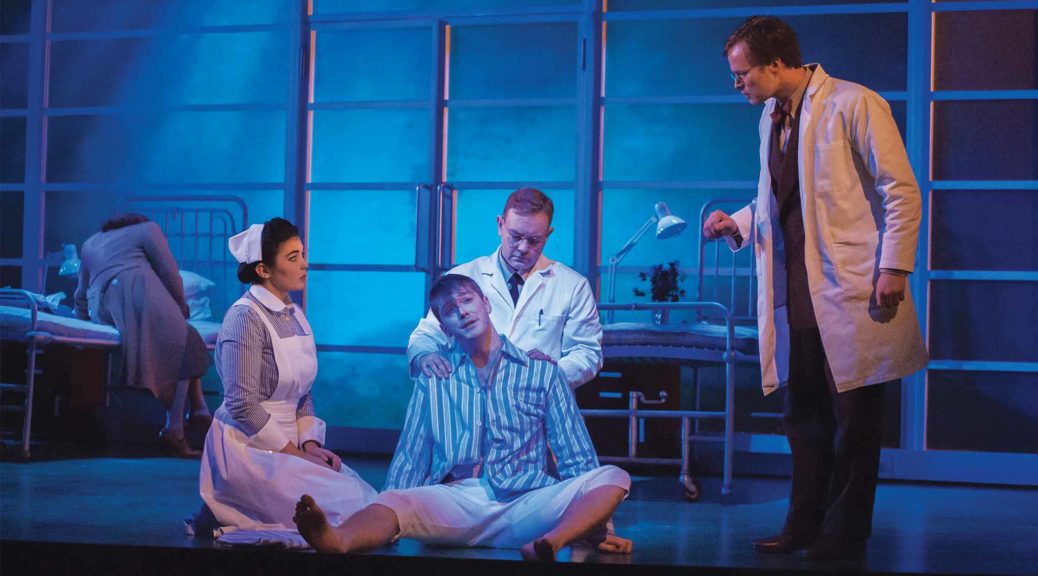
Large theater thwarts intimate baroque
A lesser-known baroque opera took over the S.F. Opera Sunday, offering first-rate stage direction and conducting while falling short of vocal expectations.
Handel’s “Orlando” (1733) is a fictional love story inspired by Charlemagne’s eighth-century military leader Roland, one that took 238 years to reach US shores. It had ridden high during London’s craze for Italian opera, though its modest dimensions don’t fit expansively into the huge Opera House. This intimate chamber opera boasts a string orchestra and cast of five, with no brass, woodwinds, percussion, chorus or dancers. The score is formulaic, with solo singers delivering recitatives and da capo arias one behind the other. The musical highlight is a rare baroque vocal trio ending act two (in this three-act version).
And the singers here were hard put to fill the House with sound.
The unrequited-love plot is familiar: Orlando loves Angelica who loves Medoro, who also has to ward off the passion of Dorinda. Orlando goes mad, requiring intervention by the magician Zoroastro to regain mental health (without regaining his girlfriend—you were expecting miracles, maybe??).
To reduce the preposterousness index, the locale has been moved up to a 1940s West London hospital during the aerial-bombardment blitz, where Orlando, now in the British military, is recuperating from war wounds. This allows a lot of bomb blasts Handel never heard, as if percussion, to liven up the finale of act two.
Countertenor Aryeh Nussbaum Cohen, playing Medoro, is a marvel, a plausible leading man whose voice soared above all the other male voices around. But this large hall never shows his grand voice to best advantage. In fact, when the S.F. Ballet presented him in a vocal part three months ago on the same stage, singing Handel inPossokhov’s mirror ballet “…two united in a single soul…” they amplified Cohen’s voice, and the impact was electric. Couldn’t exception be made in opera’s no-microphone tradition for special voices like his? Cohen may have been a mere sub filling in for David Daniels, but he surely doesn’t perform like a substitute—-He is the real deal.
In fact, unless we’re all to sit in the first 10 rows, all these singers would have been helped with amplification, especially since mezzo Sasha Cooke, heard often in S.F., was not in her usual best voice doing the title role (a trouser part). Faring better were the sopranos Heidi Stober (Angelica) and Christina Gansch (Dorinda), with the latter garnering the biggest plaudits at the opening June 9.
The two English imports featured here were superb. The imaginative stage director Harry Fehr moved the small cast and extras about as adroitly as a film director. Equally impressive was veteran conductor Christopher Moulds, conducting the ensemble, shaking hands with the prompter, playing harpsichord in the pit and quite possibly collaborating on vocal ornamentation, of which there is an abundance in those “da capo” (from the top) repeats.
MUSIC NOTES—“Orlando” had played here once before in 1985 with the imposing mezzo Marilyn Horne in the title role….Countertenor David Daniels had withdrawn from the SFO cast when rape charges were filed against him early this year.
Handel’s opera “Orlando,” in Italian with supertitles, June 8-27, Opera House, S.F., by the San Francisco Opera. Duration 3:20, two intermissions. For SFO info: (415) 864-3330, or go online.